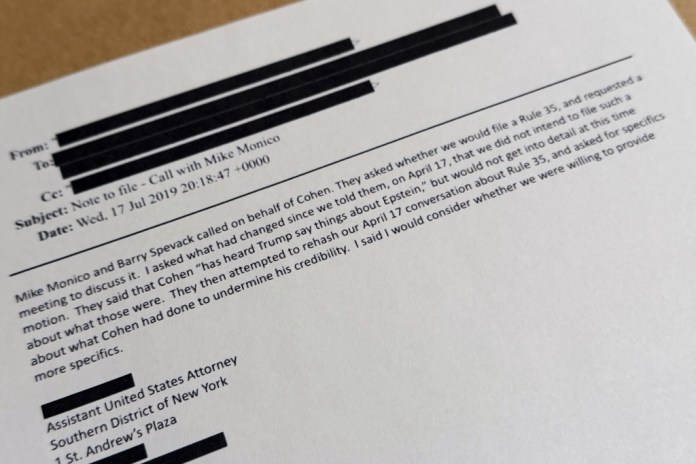DOJ admonished for subpoenaing records of aides and reporters, including Patel – Washington Examiner
The recent report by DOJ Inspector General Michael Horowitz has raised concerns about the Department of Justice’s actions from 2017, when it subpoenaed the phone and email records of congressional aides and journalists as part of a leak examination. The investigation aimed to address classified details leaks related to the surveillance of Carter Page, a former aide to Donald Trump’s campaign. Among those whose records were sought were two members of Congress and 43 congressional staffers,including Kash Patel,nominated by Trump as FBI director. Although Horowitz did not disclose the specific names of all targeted officials, Representatives Adam Schiff and eric Swalwell have confirmed that their records were subpoenaed.Patel, who was serving as a top aide on the House Intelligence Committee at the time, previously sued the DOJ over the seizure of his email data. The report raises meaningful questions about the department’s oversight and the implications for press freedom and congressional independence.
DOJ admonished for subpoenaing records of aides and reporters, including Patel
An inspector general raised concerns Tuesday about the Department of Justice seizing phone and email records of congressional aides and reporters in 2017 during the department’s wide-ranging investigation into media leaks that year.
DOJ Inspector General Michael Horowitz revealed in a 92-page report that the department sought records from telephone and internet companies regarding two members of Congress and 43 congressional staffers, including President-elect Donald Trump’s FBI director nominee, Kash Patel, as part of its leak investigation.
Horowitz said at least part of the DOJ’s leak investigations related to classified information that appeared in the media about the surveillance of Carter Page, a 2016 Trump campaign aide whom the FBI wiretapped in 2016.
Horowitz did not name any of the lawmakers or aides who were targeted, but Reps. Adam Schiff (D-CA) and Eric Swalwell (D-CA) previously confirmed their records were subpoenaed.
The aides included Patel, who sued DOJ officials last year for subpoenaing Google for his email account data while he was serving as a top aide on the House Intelligence Committee. The aides also included Jason Foster, a whistleblower advocate who worked at the time for Sen. Chuck Grassley (R-IA).
The records that were obtained were almost entirely “non-content communication,” which could include data such as with whom a person was communicating and when.
Horowitz said there appeared to be no partisan motives driving the subpoenas and that the DOJ sought records nearly evenly among Republican and Democratic staffers who would have had access to the classified material that appeared in the media.
“We did not find any evidence of retaliatory or political motivation by the career prosecutors who issued the compulsory process,” Horowitz wrote.
He said, however, that senior leadership at the DOJ was not notified about the subpoenas and that the department needs more layers of approval in place when it plans to target Congress.
The DOJ also obtained gag orders that led to the subjects of its leak investigation not finding out that their records were obtained by the government until at least a year or more after the fact, leaving no ability for the subjects to challenge the subpoenas.
The conduct “risks chilling Congress’s ability to conduct oversight of the executive branch because it exposes congressional officials to having their records reviewed by the Department solely for conducting Congress’s constitutionally authorized oversight duties,” Horowitz wrote.
He said it also created, “at a minimum, the appearance of inappropriate interference by the executive branch” into Congress’s oversight activity.
Horowitz found that the DOJ also bypassed multiple policies to obtain communication data of reporters from the Washington Post, New York Times, and CNN as part of the leak investigation. The reporters were not made aware of these seizures until at least a year or more later, after gag orders the DOJ had obtained were lifted.
“Given the important interests at stake, we were troubled that these failures occurred, particularly given that only a few years had elapsed since the Department substantially overhauled its News Media Policy in 2014 and 2015 following serious criticisms concerning the Department’s efforts to obtain communications records of members of the news media,” Horowitz wrote.
The revelation that journalists’ records were improperly seized during the first Trump administration comes after Trump recently railed against the PRESS Act, a law passed by unanimous consent in the House this year that would shield journalists from record seizures, such as the ones Horowitz references.
The Biden administration’s DOJ updated its policies in 2021 to say it would not use “compulsory legal process,” such as subpoenas or warrants, against reporters when the department conducts leak investigations. The Trump administration could reverse this policy, and while the PRESS Act would enshrine it into law, the bill remains stalled in the Senate Judiciary Committee.
" Conservative News Daily does not always share or support the views and opinions expressed here; they are just those of the writer."




